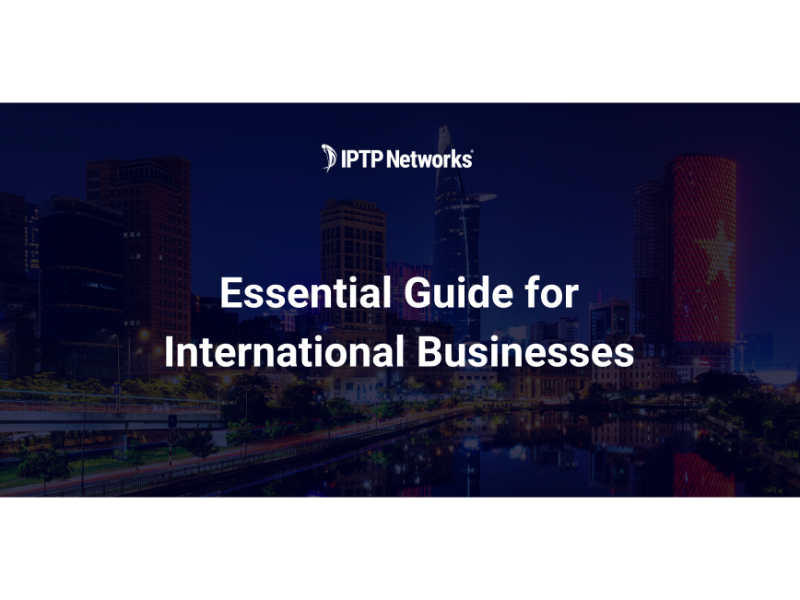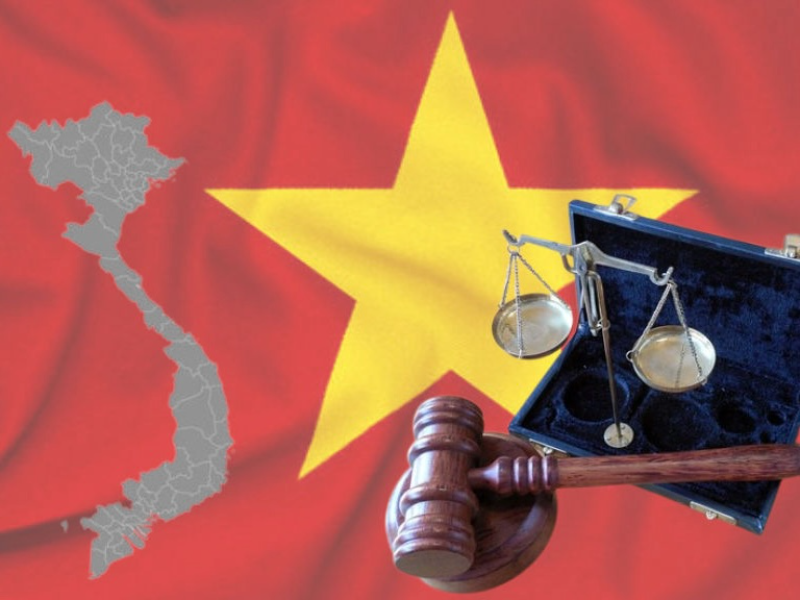- Vietnam’s Decree 147/2024 mandates strict compliance, with non-compliant providers facing shutdowns, risking severe business disruptions and service terminations.
- Businesses must carefully select compliant infrastructure providers like IPTP Networks to avoid sudden service outages, reputational damage, and costly emergency transitions.
- The regulation aligns Vietnam’s digital infrastructure with regional trends, emphasising security, data storage, and robust monitoring for long-term operational stability.

Vietnam’s implementation of Decree 147/2024 marks a turning point in the country’s digital infrastructure landscape. The most pressing issue for businesses operating in Vietnam is the strict enforcement mechanism—non-compliant service providers risk having their operations shut down entirely. For businesses relying on these providers, the consequences could be severe, with the potential for abrupt and wide-reaching disruptions to digital infrastructure.
A high-stakes regulatory shift
These new regulations go beyond standard compliance requirements. Businesses that engage with providers failing to meet the decree’s criteria could face the abrupt loss of access to critical services. When a provider is penalised, its entire client base is affected—websites become unreachable, services cease to function, and day-to-day operations grind to a halt. This is not a theoretical risk but a scenario that has played out in other jurisdictions with similar regulatory frameworks.
The decree effectively divides the market into two types of providers: those investing in regulatory compliance and those attempting to navigate under the radar. For businesses, the choice has never been riskier—aligning with a non-compliant provider could mean complete and unforeseen service termination at any moment.
Also read: Datacloud awards 2025: celebrating in digital infrastructure
Also read: UnionPay expands QR payments to Laos after Vietnam
Lessons from other markets
Vietnam’s approach follows the template set by other markets where stringent enforcement has reshaped digital infrastructure. Authorities have signalled their firm commitment to ensuring compliance, making it imperative for providers to align with the new requirements. The enforcement mechanisms draw on established models that have been effective in reinforcing digital governance elsewhere.
The technical foundations of compliance
The decree sets out explicit technical benchmarks concerning network architecture, data storage, and service delivery systems. Large-scale providers must implement robust monitoring infrastructure, while smaller players must ensure their systems are proportionate to their market presence in Vietnam. These mandates are not bureaucratic formalities but essential operational measures that directly influence service stability and reliability.
The implementation of Decree 147/2024 represents Vietnam’s alignment with broader regional trends in digital infrastructure regulation. Companies operating in Southeast Asia need to view these requirements not as obstacles but as opportunities to build more robust and compliant infrastructure systems that can support their long-term growth in the region.
Oceania, CTO at IPTP Networks Vietnam
“With Decree 147/2024, Vietnam is aligning its digital infrastructure with broader regional regulatory trends. Companies operating across Southeast Asia should view these changes not as burdens but as opportunities to build resilient, future-proofed systems that support long-term expansion,” stated Oceania, CTO at IPTP Networks Vietnam.
Choosing the right infrastructure provider
The selection of a compliant infrastructure provider is now a make-or-break decision. Businesses must rigorously assess potential partners based on:
- Their ability to meet compliance requirements and maintain regulatory alignment;
- The robustness of their monitoring and security frameworks;
- Their track record in handling similar regulatory challenges in other regions;
- Their financial capacity to sustain ongoing compliance efforts;
- Their understanding of the Vietnamese regulatory landscape and commitment to adapting to further changes.
IPTP Networks, an ideal example, has proactively implemented advanced monitoring systems and data storage infrastructure to comply with the decree. With extensive experience managing regulatory frameworks across Southeast Asia, it has dedicated teams in Vietnam ensuring continued alignment with evolving standards.
Also read: Interview with Vladimir Kangin, CEO at IPTP Networks, and a 28-year voyage from USSR to Cyprus
Strategies for risk mitigation
Businesses must adopt comprehensive risk management strategies to safeguard their digital operations. These should include:
- Regular audits of provider compliance status;
- Developing contingency plans for potential service disruptions;
- Maintaining relationships with multiple compliant providers;
- Understanding the technical requirements for a swift provider transition if necessary;
- Keeping abreast of regulatory developments and industry responses.
The financial risks of partnering with a non-compliant provider extend beyond immediate service disruption. Businesses may suffer reputational damage, loss of market position, and significant expenses associated with emergency provider transitions. The cost of choosing the wrong provider can far outweigh any short-term savings on infrastructure.
Looking ahead: Market implications
As regulatory frameworks tighten across Southeast Asia, companies need infrastructure partners that can navigate these shifts while maintaining service integrity. The trend towards greater regulatory oversight suggests that similar compliance requirements will likely emerge in other markets.
Also read: Nexion expands cybersecurity offerings in Southeast Asia
Final thoughts
Vietnam’s new infrastructure regulations create a clear divide in the country’s provider market. Businesses now face a stark choice: partner with fully compliant providers or risk sudden operational paralysis. The repercussions of getting this decision wrong extend beyond financial costs—they could mean the difference between continuity and total service collapse.
In this new regulatory environment, rigorous due diligence is no longer optional. Businesses must prioritise providers with a proven commitment to compliance and technical excellence. Thriving in Vietnam’s digital market will depend on making informed, strategic decisions about infrastructure partnerships that ensure long-term operational stability.

